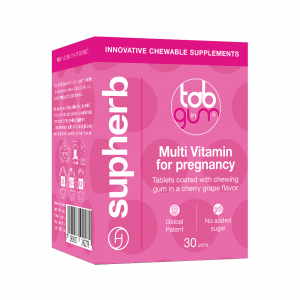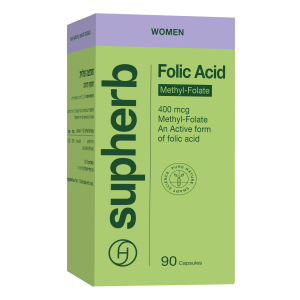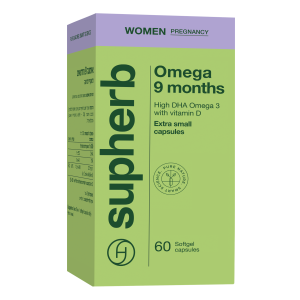- Home
- Pregnancy and postpartum
- Folic Acid in Pregnancy – With You from Planning to Breastfeeding
Folic Acid in Pregnancy – With You from Planning to Breastfeeding
- Folic acid is important for the proper development of the fetus’ nervous system.
- There are official recommendations for women to take folic acid daily throughout their fertile years.
- Folate is the natural and active form of folic acid, as it exists in nature.

Folic acid – those of us who are pregnant, or even planning on getting pregnant, know it’s definitely one of the most critical and essential vitamins for our body’s proper functioning. In this article we’ll shed light on the way that it helps build cells and the importance of taking it before getting pregnant and during pregnancy.
The importance and necessity of folic acid during pregnancy
What is folic acid?
Folic acid belongs to the group of vitamin B and is also called vitamin B9. Generally, it plays an essential role in building and creating new cells and preserving them and is especially essential during pregnancy and fetus growth, in which the cells our body rapidly split. The role of folic acid during pregnancy is in fact preparing your body (even when you’re planning of getting pregnant) during the pregnancy itself and after it. Folic acid is important for the proper development of the fetus’ nerves system in the first three months, and it’s therefore important to take especially in the first trimester and even before.
From dreaming of being pregnant all the way to breastfeeding your baby
The necessity of folic acid had already been tested and proven with global health organizations and was found to significantly contribute to the proper development of the fetus’ brain, nervous system and various bodily systems during pregnancy. They also found that taking folic acid during pregnancy contributes to the prevention of eclampsia as well as significantly reducing congenital defects.
Women are recommended to take folic acid before getting pregnant and especially during the first three months of pregnancy, while they’re fertile. Why is that?
The fetus’ organs develop in the first few weeks of the pregnancy, among them the brain and spine. A congenital defect of single cells at this early stage of the pregnancy – even before the mother knows she’s pregnant – might cause defects in entire systems.
Notice – you should keep taking folic acid throughout the pregnancy for proper fetus development and its growth, as well as preventing anemia in the mother. Since the pregnancy is unplanned in many cases, it’s recommended that you take folic acid every day throughout your fertile years.
How should you take folic acid?
Generally speaking, you should take folic acid naturally by eating certain foods: green vegetables and leaves such as spinach, lettuce, parsley, dill, broccoli, mangold and beets; legumes such as peas, beans and lentils; citrus; chokeberry; nuts and seeds. The form of folic acid in food is folate, which is the natural and most available form for absorption, without having to further convert it by the body.
However, it’s not easy consuming the amount of folic acid necessary for pregnancy only through food, which is why you should take supplements.
Folic acid dosage during pregnancy
The recommended dosage of folic acid for fertile women is at least 400mcg per day. Women who’d given birth to a baby with a congenital defect in the past and have a history of it in the family, suffer from diabetes or overweigh, should get a physician’s reference to take folic acid supplements up to 5mg per day – this dosage will of course be determined by a certified gynecologist.
There are so many types of folic acid, how do I choose?
There are so many options and yet we have to choose one. We recommend taking folic acid in its folate derivative. Why?
Folate is the active and natural derivative of folic acid. The name folate is from the Latin word Folium, which means leaves, since natural folic acid is highly concentrated in leaves. Folic acid in nature comes in “folate” form and its advantage is by allowing it to come “readymade” without the body having to convert it, providing it with the effective and optimal absorption, just like it is in nature. This is in contrast to regular folic acid, which is the synthetic lab-produced form that should be converted. This conversion depends on an enzyme in the body called MTHFR in order to make it an active derivative and optimally absorb it.
Some of the population lacks the enzyme that has to do with the methylation process, due to genetic defect, and since it’s not easily tested, you should take the active folate form, quickly absorbed and considered safer. How can you tell? Look for the name methyl-folate in the ingredient list.
No fear of side effects
We’re all skeptical about taking supplements that cause side effects, it’s understood. The great thing about folic acid, unlike other supplements, is that is side effects free, and you have nothing to fear.
In conclusion, folic acid during pregnancy is necessary for a proper process, both for the fetus and the mother.
Have a great and healthy pregnancy!
















